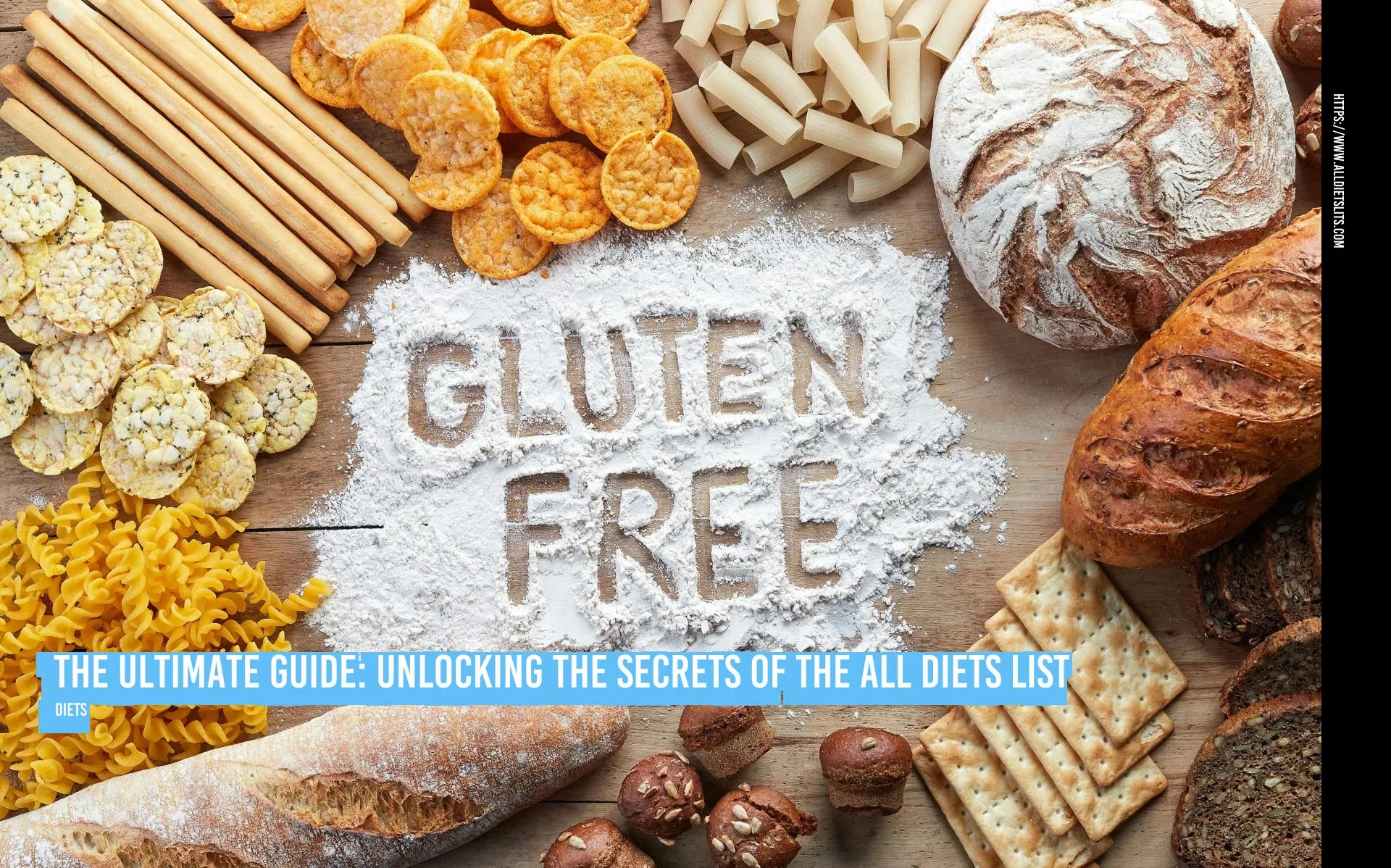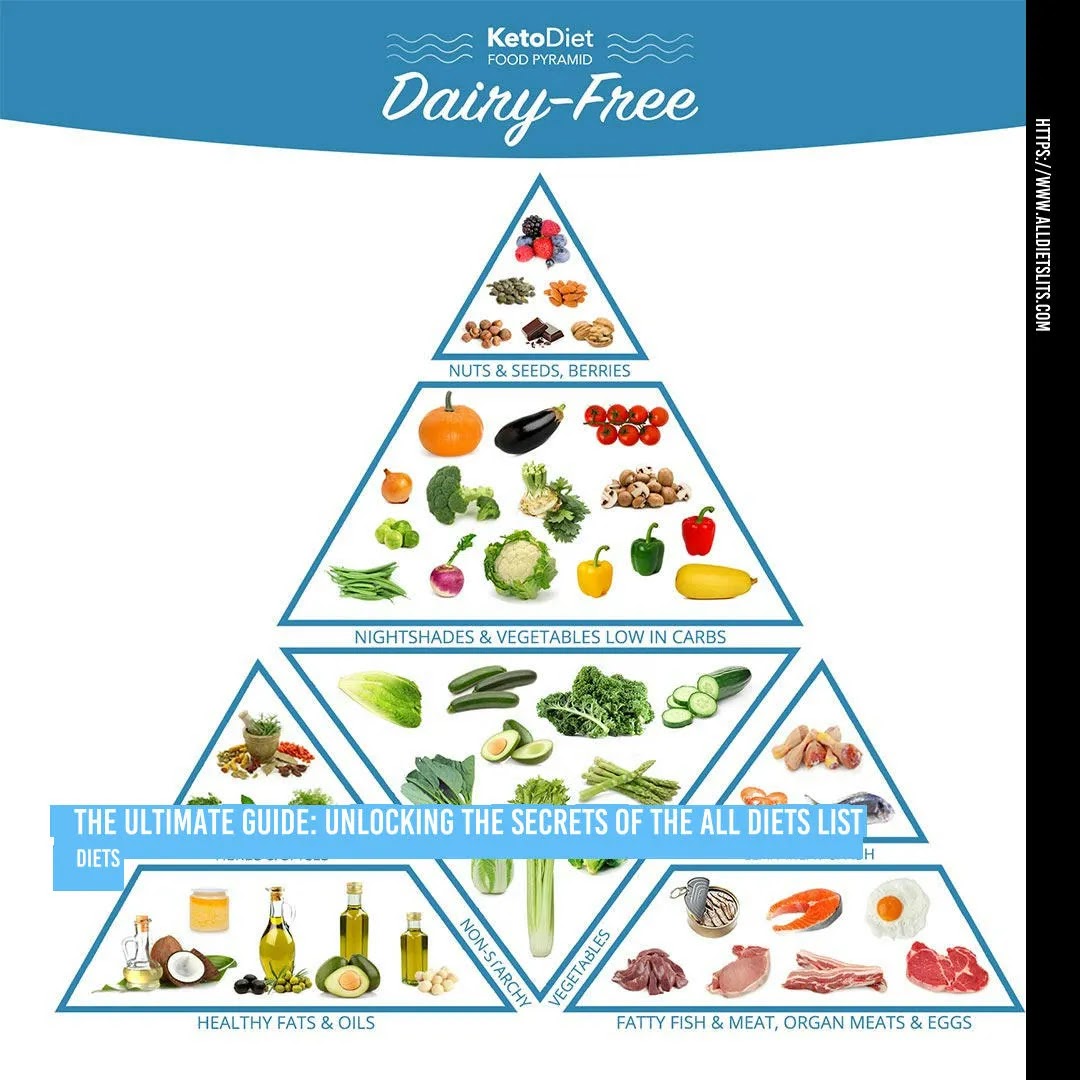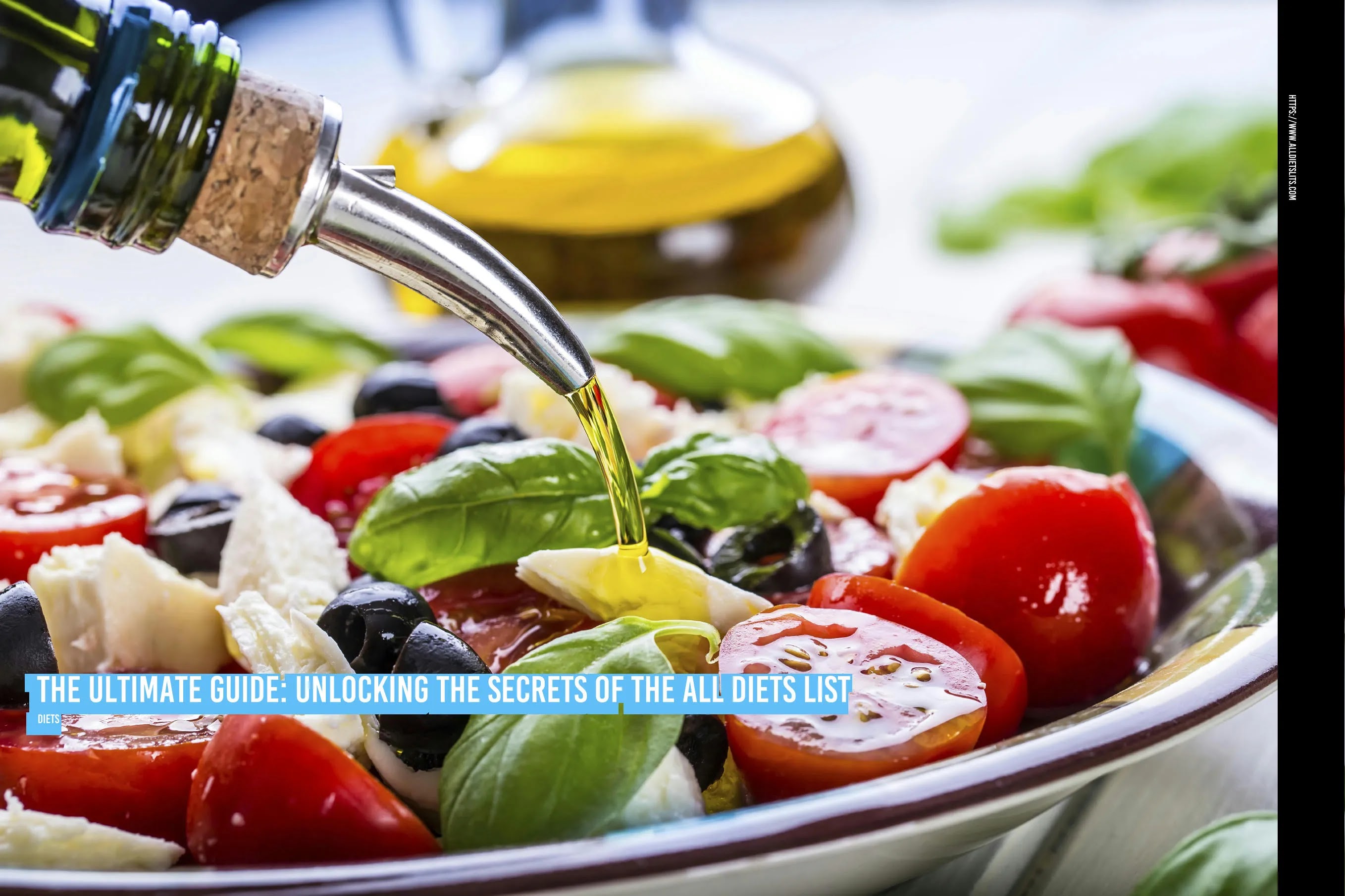The Ultimate Guide: Unlocking the Secrets of the All Diets List

Source phys.org
Hey there, diet enthusiasts! If you've ever found yourself overwhelmed by the vast sea of diets out there, fear not because we've got your back. Welcome to "The Ultimate Guide: Unlocking the Secrets of the All Diets List." This comprehensive guide is designed to be your trusty companion on your journey to discovering the perfect diet for you. From ketogenic and paleo to vegan and Mediterranean, we'll delve into the depths of every diet, unlocking their secrets, debunking the myths, and uncovering the truth. So sit back, relax, and get ready to explore the fascinating world of diets like never before!
Vegetarian and Vegan Diets

Source www.health.harvard.edu
The Vegetarian Diet is a dietary approach that excludes meat but includes plant-based foods such as fruits, vegetables, grains, and dairy products. There are variations within this diet that allow the consumption of seafood or eggs. This diet is popular among individuals who want to reduce their meat intake for health, ethical, or environmental reasons.

Source www.dietspotlight.com
Vegan Diet
The Vegan Diet takes vegetarianism a step further by excluding all animal products, including meat, dairy, eggs, and even honey. Followers of this diet rely on a wide range of plant-based foods for their nutrition. Due to the complete avoidance of animal products, vegans often need to supplement their diet with vitamin B12, as it is primarily found in animal products.

Source zuzkalight.com
Plant-Based Diet
A Plant-Based Diet is a broader term that encompasses both vegetarian and vegan diets, as well as any diet mainly focused on foods derived from plants. This diet may allow occasional consumption of animal products, but the primary focus is on plant-based foods for nutrition. Many people opt for a plant-based diet as it is associated with various health benefits, including better weight management and reduced risk of chronic diseases.
Are you tired of yo-yo dieting and want a long-term solution for maintaining a healthy weight? Check out the All Diets List for a wide range of sustainable and effective diet options.
Weight-Loss Diets

Source worldbranddesign.com
WW (formerly Weight Watchers) emphasizes healthy eating habits, portion control, and gradual weight loss. It utilizes a points-based system to guide food choices. Participants are assigned a certain number of points per day based on their individual goals and are encouraged to make nutritious food choices within their allocated points. This weight-loss diet promotes long-term lifestyle changes rather than quick fixes. It focuses on creating balanced meals that include lean protein, whole grains, fruits, and vegetables. By providing flexibility and teaching portion control, WW aims to help individuals develop sustainable eating habits.
Low-Fat Diet

Source www.clinicaladvisor.com
A low-fat diet restricts the consumption of high-fat foods and focuses on lean protein, whole grains, and fruits and vegetables. This diet is commonly recommended for heart health and weight management. The idea behind a low-fat diet is to reduce the intake of saturated and trans fats, which are associated with increased cholesterol levels. Instead, individuals following this diet opt for healthier fats, such as those found in nuts, seeds, and avocados. By choosing low-fat options and minimizing the intake of fatty foods, individuals can create a calorie deficit, aiding in weight loss.
DASH Diet

Source inquis.com
The DASH (Dietary Approaches to Stop Hypertension) diet is designed to lower blood pressure and improve heart health. It emphasizes the consumption of fruits, vegetables, whole grains, lean protein, and low-fat dairy products while limiting sodium intake. The DASH diet is rich in nutrients such as potassium, calcium, and magnesium, which are known to help regulate blood pressure. By focusing on nutrient-dense foods, this diet promotes overall health while also aiding in weight management. It encourages individuals to choose lean sources of protein, such as poultry and fish, and increase their intake of fruits and vegetables to support a balanced and heart-healthy eating pattern.
Looking for a reliable resource that provides an extensive compilation of different diets? Look no further than All Diets List. Discover a variety of diets, learn about their pros and cons, and make an informed decision for your health and well-being.
Specialized Diets

Source news.childrensmercy.org
The Gluten-Free Diet eliminates gluten, a protein found in wheat, barley, and rye. It is primarily followed by individuals with celiac disease or non-celiac gluten sensitivity. Gluten consumption can cause digestive issues, inflammation, and damage to the small intestine in people with celiac disease. This diet involves avoiding foods and beverages that contain gluten, such as bread, pasta, cereal, and many processed foods. Alternative grains and flours like rice, quinoa, almond flour, and coconut flour can be used as substitutes for gluten-containing grains.

Source ketodietapp.com
The Dairy-Free Diet involves avoiding all dairy products due to lactose intolerance, milk allergies, or personal preferences. Lactose intolerance is the inability to digest lactose, the sugar found in milk and dairy products, leading to gastrointestinal symptoms like bloating, gas, and diarrhea. This diet requires finding alternative sources of calcium and other essential nutrients found in dairy products. Calcium can be obtained from foods like leafy greens, tofu, almonds, and fortified plant-based milk, while vitamins D and B12 can be obtained from supplements or fortified foods.

Source www.cbsnews.com
The Mediterranean Diet is based on the traditional eating patterns of countries bordering the Mediterranean Sea, such as Greece, Italy, and Spain. This diet emphasizes the consumption of fruits, vegetables, whole grains, legumes, fish, and olive oil, while limiting the intake of red meat and processed foods. The Mediterranean diet has been associated with various health benefits, including reduced risk of heart disease, cancer, and Alzheimer's disease. It is also known for its anti-inflammatory properties and is rich in healthy fats, fiber, vitamins, and minerals.
If you're looking for information on various diets for weight loss, you can find a comprehensive list at All Diets List. Explore different diet plans, their benefits, and choose the one that suits your needs and lifestyle.
FAQ
1. What is a diet?
A diet refers to the food and drink consumed by an individual or a group of people. It can also refer to a specific eating plan aimed at achieving certain health or weight goals.2. Are all diets the same?
No, all diets are not the same. There are various types of diets that cater to different needs, such as weight loss, muscle gain, or specific health conditions.3. What are some popular diets?
Some popular diets include the Mediterranean diet, the ketogenic diet, the paleo diet, and the vegan diet. These diets have gained popularity due to their potential health benefits.4. How do I choose the right diet for me?
Choosing the right diet depends on your personal goals, preferences, and health condition. It's best to consult with a healthcare professional or a registered dietitian who can provide personalized recommendations.5. Can diets help with weight loss?
Yes, diets can help with weight loss. By creating a calorie deficit and making healthier food choices, it is possible to lose weight. However, it's important to focus on sustainable and balanced approaches to dieting.6. Are diets restrictive?
Some diets can be restrictive, especially those that eliminate certain food groups or severely limit calorie intake. It's important to choose a diet that is sustainable and allows for a variety of nutritious foods.7. Can diets improve overall health?
Yes, diets can improve overall health when they are well-balanced and provide essential nutrients. Certain diets, such as the Mediterranean diet, have been associated with a reduced risk of chronic diseases.8. Are there any risks associated with diets?
Some diets may carry risks, especially extreme or fad diets that eliminate entire food groups or severely restrict calorie intake. It's important to choose a diet that is safe and sustainable.9. How long should I follow a diet?
The duration of a diet depends on your individual goals and needs. Some diets may be followed for short periods, while others may become a long-term lifestyle change.10. Can I combine different diets?
It's possible to combine elements of different diets to create a personalized eating plan. However, it's important to ensure that the combination is balanced and meets your specific nutritional needs.
Conclusion
In conclusion, there is a wide variety of diets available, each catering to different needs and goals. It's important to choose a diet that aligns with your personal preferences, health condition, and goals. Remember to prioritize balanced and sustainable approaches to dieting, as extreme or restrictive diets may carry risks. Consult with a healthcare professional or registered dietitian to receive personalized recommendations. By making healthier food choices and following a well-designed diet, you can improve your overall health and achieve your desired outcomes. Thank you for reading, and we wish you the best on your dietary journey!